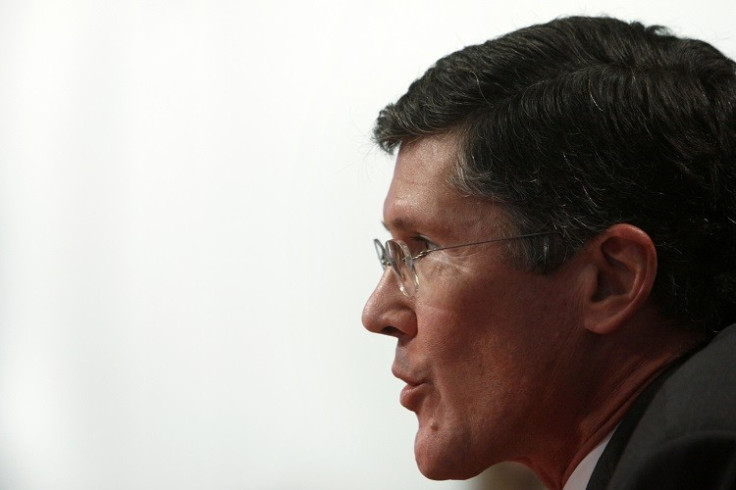Former NYSE CEO and Goldman Sachs President John Thain: 'Ban Equity Dark Pool Trading'

The former Goldman Sachs President, chief executive of Merrill Lynch and the New York Stock Exchange has called for the elimination of equity 'dark pool' trading as it is insufficiently transparent and fragments the market.
In a TV interview, John Thain said that 'dark pool' trading hurts the market and can hurt investors in the long run and should be closed.
"The biggest problem is the fragmentation, you can trade stocks in 50 different places," says Thain, who is now CIT Group chief executive.
"There's no transparency in most of those places. That's not good for the market, that's not good for retail investors."
'Dark pool' trading allows people to trade equities without using an exchange and allows investors to trade in bulk.
The practice allows anonymity to each side of the deal and dark pools do not publish bids or offers on shares.
Critics say that financial institutions that largely trade in 'dark pools' are becoming less regulated versions of traditional exchanges.
However, purveyors of the practice say that there is no evidence that off-exchange trading distorts the markets or hurts the investors.
Thain's former employer, Goldman Sachs, runs one of the world's largest 'dark pool' trading hubs called Sigma X.
The Rise of Dark Pool Trading
'Dark pool' trading rose in popularity before the financial crisis because it allowed investors to bulk trade without having to disclose who they were or how much they had bought or sold their stocks for.
However, after the financial crisis of 2008, 'dark pool' trading volumes fell the following year and investors became cautious about not knowing who they were trading with and at what price.
However, Bloomberg data shows that 'dark pool' trading volumes have recovered as a third of all equity deals are conducted off an exchange.
Specifically in Europe, the volume of 'dark pool' stock deals reached 10% for the first time as investors decided to buck the trend for greater transparency, say research house TABB Group.
TABB says that the regulators and lawmakers drive to increase tax and install burdensome oversight has driven institutional trade by another 19%.
© Copyright IBTimes 2024. All rights reserved.






